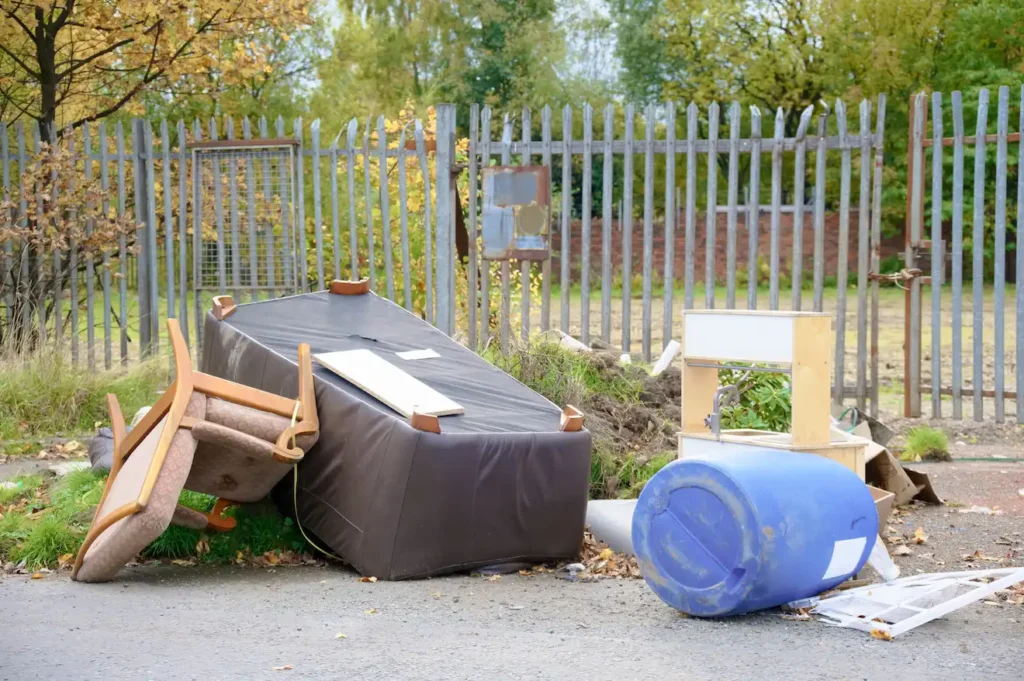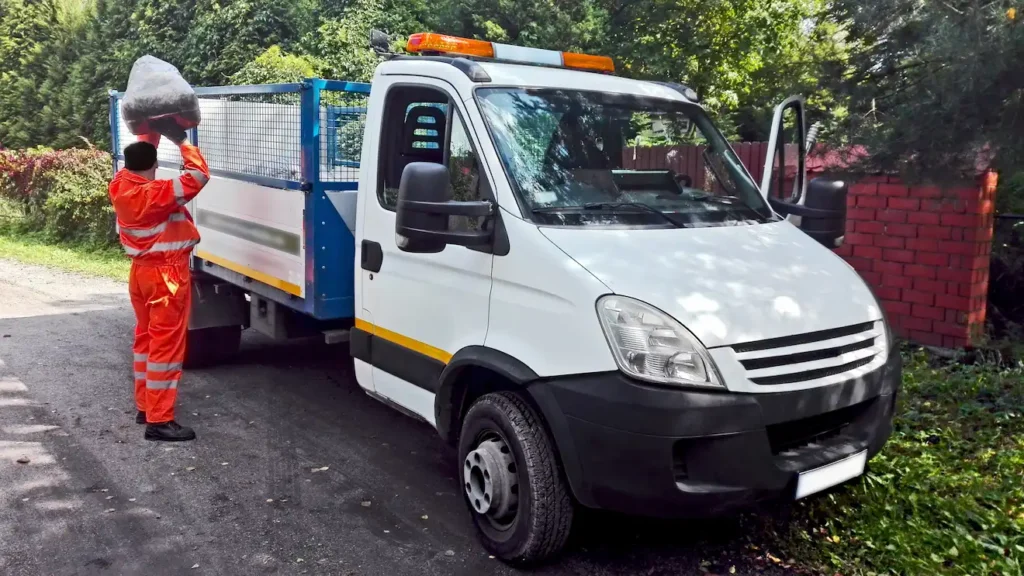For facilities managers, maintaining clean, safe, well-managed premises is non-negotiable. Yet one of the persistent headaches they face is fly-tipping — the illegal dumping of waste, which poses risks to safety, compliance, budget, and reputation. At OUTCO, our waste clearance services are geared to address these risks head-on, but to understand how and why, it’s important to grasp the scale of the problem.
The Scale of Fly-Tipping in England
Recent figures published by Defra show that in 2023/24, local authorities in England dealt with 1.15 million fly-tipping incidents — up 6% from 1.08 million in 2022/23.
- 60% of those incidents involved household waste (for example items from house or shed clearances, old furniture, carpets, small-scale DIY waste).
- The commonest locations: highways (pavements and roads) had 427,000 incidents, around 37% of total fly-tips.
- While most incidents are relatively small (car-boot load or small van load), 4% (47,000 incidents) were of “tipper lorry load” size or larger. These large fly-tips alone cost local authorities £13.1 million in clearance during 2023/24.
These statistics make clear that fly-tipping is not just a nuisance; it’s a growing cost for local government, and by extension for any business or facility dealing with waste management responsibilities.
Why Facilities Managers are Especially Vulnerable to Fly Tipping

Facilities managers must confront several inter-linked problems:
- Operational disruptions: Fly-tipped waste on property grounds, back alleys, car parks or perimeters can block access, create hazards, deter staff or visitors, and degrade appearance.
- Health, safety, environmental risk: Waste can carry pests, pollutants or hazardous materials. Unauthorised dumping may include dangerous items (sharp objects, chemicals) that require special handling and increase risk of liability.
- Legal & compliance issues: Under UK law (for example the Environmental Protection Act), facilities (or landowners) can be held responsible for clearing waste dumped on their property. Failing to act can lead to enforcement notices or even fines.
- Cost pressures: Not only is there the direct cost of clearing fly-tipped waste (especially for large incidents), but also indirect costs: staff time, lost use of spaces, insurance implications, reputational damage, possibly penalties.
- Reputation and user experience: Fly-tipped waste undermines the perception of professionalism, safety, and maintenance. It can lower morale, discourage tenants or visitors, and affect property value.
- Detection & enforcement gaps: While local authorities carry out many enforcement actions, not every incident leads to action. The data shows over half of fly-tipping incidents wind up without court fines, and many go unreported on private land.
How OUTCO’s Waste Clearance Services Can Help

Given those challenges, here’s what facilities managers need — and how OUTCO delivers:
- Rapid response and clearance: We can quickly mobilise to clear fly-tipped waste, preventing hazards from escalating and reducing the window in which further damage or risk occurs.
- Correct, safe disposal: We ensure waste is handled properly — whether household, commercial, bulky items or hazardous materials — in line with regulatory requirements, reducing legal exposure.
- Advisory support & duty of care: We help clients understand their legal obligations (for example in relation to “duty of care”), signage, secure waste storage, and waste carrier licensing. Proper documentation and protocols can act as deterrents and protect against liability.
- Preventative measures: We can assess risk areas (hotspots), recommend physical barriers, surveillance, or other deterrents. Also, scheduling regular waste clearance to avoid accumulation that can attract further dumping.
- Budgeting & cost control: Because we have experience and infrastructure, we can often clear waste more efficiently than ad hoc efforts. Our clients benefit from predictable, transparent pricing rather than unforeseen, inflated costs after large fly-tip events.
Conclusion
Fly-tipping is on the rise in England, increasingly involving household waste and large, costly incidents. For facilities managers, the implications are wide-ranging: safety, legal, financial, operational and reputational.
With a partner like OUTCO, many of these risks can be mitigated. Proactive management, fast clearance, and compliance know-how are critical. If you’d like advice or a waste clearance plan tailored to your facilities, get in touch — keeping your premises clean, safe and compliant should never be an afterthought.








